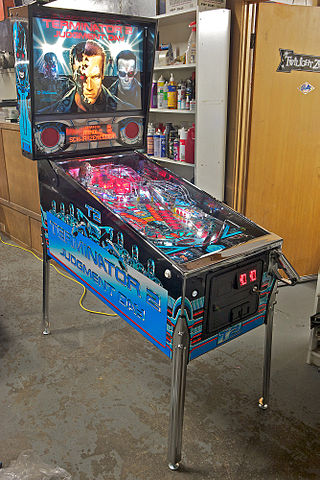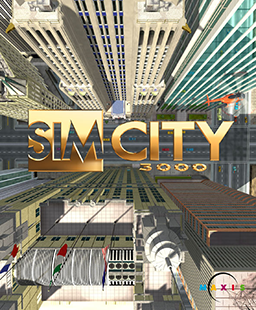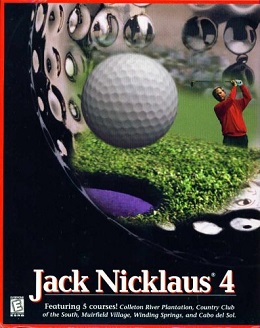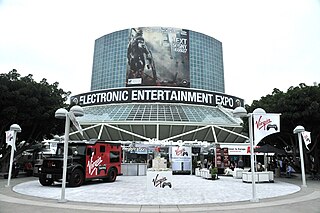Related Research Articles

Maxis is an American video game developer and a division of Electronic Arts (EA). The studio was founded in 1987 by Will Wright and Jeff Braun, and acquired by Electronic Arts in 1997. Maxis is best known for its simulation games, including The Sims, Spore and SimCity.

The 3DO Company, also known as 3DO, was an American video game company. It was founded in 1991 by Electronic Arts founder Trip Hawkins, in a partnership with seven other companies. After 3DO's flagship video game console, the 3DO Interactive Multiplayer, failed in the marketplace, the company exited the hardware business and became a third-party video game developer. It went bankrupt in 2003 due to poor sales of its games. Its headquarters were in Redwood City, California, in the San Francisco Bay Area.

Pinball games are a family of games in which a ball is propelled into a specially designed table where it bounces off various obstacles, scoring points either en route or when it comes to rest. Historically the board was studded with nails called 'pins' and had hollows or pockets which scored points if the ball came to rest in them. Today, pinball is most commonly an arcade game in which the ball is fired into a specially designed cabinet known as a pinball machine, hitting various lights, bumpers, ramps, and other targets depending on its design. The game's object is generally to score as many points as possible by hitting these targets and making various shots with flippers before the ball is lost. Most pinball machines use one ball per turn, and the game ends when the ball(s) from the last turn are lost. The biggest pinball machine manufacturers historically include Bally Manufacturing, Gottlieb, Williams Electronics and Stern Pinball.

SimCity 3000 is a city building simulation video game released in 1999, and the third major installment in the SimCity series. It was published by Electronic Arts (EA) and developed by series creator Maxis. It was released for Microsoft Windows, Macintosh, and, through an arrangement with Loki Games, Linux.

Electronic Arts Inc. (EA) is an American video game company headquartered in Redwood City, California. Founded in May 1982 by former Apple employee Trip Hawkins, the company was a pioneer of the early home computer game industry and promoted the designers and programmers responsible for its games as "software artists". EA published numerous games and some productivity software for personal computers, all of which were developed by external individuals or groups until 1987's Skate or Die! The company shifted toward internal game studios, often through acquisitions, such as Distinctive Software becoming EA Canada in 1991.
Sublogic Corporation is an American software development company. It was formed in 1977 by Bruce Artwick, and incorporated in 1978 by Artwick's partner Stu Moment as Sublogic Communications Corporation. Sublogic is best known as the creator of the Flight Simulator series, later known as Microsoft Flight Simulator, but it also created other video games such as Night Mission Pinball, Football, and Adventure on a Boat; educational software; and an Apple II graphics library.

Full Tilt! Pinball is a pinball video game developed by Cinematronics and published by Maxis in 1995. It features pre-rendered 3D graphics and three tables: Space Cadet, Skullduggery, and Dragon's Keep. On each table, side displays show the players' scores, ball numbers, player numbers, various other information, and a table-specific image.
Danny Thorpe was an American programmer noted mainly for his work on Delphi.

Jack Nicklaus 4 is a 1997 sports golf video game. It was published by Accolade, and is the fourth in a series of video games named after golfer Jack Nicklaus, following Jack Nicklaus Golf & Course Design: Signature Edition (1992). The original Microsoft Windows version was developed by Cinematronics. Versions were also released for Macintosh and DVD. A PlayStation version titled Jack Nicklaus '98 was also in development. The game was followed by Jack Nicklaus 5, released later in 1997.

Donald Allan Mattrick is a Canadian businessman who previously served as the CEO of social gaming company Zynga and the president of the Interactive Entertainment Business at Microsoft. Before joining Microsoft in 2007, Mattrick worked at Electronic Arts for 15 years as the president of Worldwide Studios. In 1982, he founded Distinctive Software, which was later acquired by Electronic Arts in 1991 and renamed to EA Vancouver.
Links is a series of golf simulation video games, first developed by Access Software, and then later by Microsoft after it acquired Access Software in 1999. Microsoft also produced its own series of golf games based on Links, under the title Microsoft Golf. The Links series was a flagship brand for Access, and was continued from 1990 to 2003. The first game in the series, Links: The Challenge of Golf, won Computer Gaming World's 1991 Action Game of the Year award.
EA Salt Lake was an American video game developer located in Salt Lake City, Utah, United States. It was owned by video game publisher Electronic Arts (EA).
Brian R. Eddy is an American game designer and programmer, best known for designing Attack From Mars pinball for Midway and programming FunHouse and, with Larry DeMar, The Machine: Bride of Pin*Bot. While at Williams Electronics / Midway Games, he also designed Medieval Madness, and programmed Indiana Jones: The Pinball Adventure. Eddy holds three patents related to game design.

Video gaming in the United States is one of the fastest-growing entertainment industries in the country. The American video game industry is the largest video game industry in the world. According to a 2020 study released by the Entertainment Software Association, the yearly economic output of the American video game industry in 2019 was $90.3 billion, supporting over 429,000 American jobs. With an average yearly salary of about $121,000, the latter figure includes over 143,000 individuals who are directly employed by the video game business. Additionally, activities connected to the video game business generate $12.6 billion in federal, state, and local taxes each year. World Economic Forum estimates that by 2025 the American gaming industry will reach $42.3 billion while worldwide gaming industry will possibly reach US$270 billion. The United States is one of the nations with the largest influence in the video game industry, with video games representing a significant part of its economy.
Danger Close Games was an American video game developer based in Los Angeles. The company was founded in March 1995 as joint venture between DreamWorks SKG and Microsoft under the name DreamWorks Interactive, with studios in Redmond, Washington, and Los Angeles.

Jack Nicklaus Golf & Course Design: Signature Edition is a 1992 golf video game developed by Sculptured Software and published by Accolade for MS-DOS. It is part of a series of games named after golfer Jack Nicklaus, and follows Jack Nicklaus' Unlimited Golf & Course Design (1990). Like its predecessor, the game includes a golf course designer that allows the player to create customized courses. Two add-on disks provide additional courses. In 1995, both disks were re-released along with Signature Edition as a compilation titled Jack Nicklaus: The Tour Collection.
Jack Nicklaus is a series of golf video games named after golfer Jack Nicklaus. The first game, Jack Nicklaus' Greatest 18 Holes of Major Championship Golf, was developed by Sculptured Software and published by Accolade. It was released for various platforms beginning in 1988. Accolade would publish subsequent games in the series for the next decade, before selling the rights to Activision in 1998. Activision published a sixth game in the series, Jack Nicklaus 6: Golden Bear Challenge, in 1999, but chose not to publish a sequel due to poor sales. The next game in the series, Jack Nicklaus Perfect Golf, was released by a new company in 2016.
References
- ↑ "Maxis South". MobyGames. Retrieved 2023-10-12.
- ↑ Sherman, Chris (June 1996). "Industry Acquisitions Continue". Next Generation . No. 18. Imagine Media. p. 22.
- ↑ Geoff Keighley. "SIMply Divine: The story of Maxis Software page 7". GameSpot. Archived from the original on 2005-04-04.
- ↑ "Electronic Arts Acquires Maxis Software | Mergr M&A Deal Summary". mergr.com. Retrieved 2023-10-12.
- ↑ WIRED Staff. "Electronic Arts to Buy Maxis for $125 Million". Wired. ISSN 1059-1028 . Retrieved 2023-10-12.
- ↑ "Maxis South Titles Canceled". GameSpot . July 30, 1997. Archived from the original on February 21, 1999. Retrieved July 30, 2022.
- ↑ "Jack Nicklaus 4 (1997)". MobyGames. Retrieved 2023-10-12.
- ↑ "Maxis South (Company)". Giant Bomb. Retrieved 2023-10-12.
- ↑ "'3D Pinball Space Cadet' – The flippin' story of the most recognizable game demo on Windows". Philstar Life. Retrieved 2023-10-12.
- ↑ "Maxis South (Company)". Giant Bomb. Retrieved 2023-10-12.